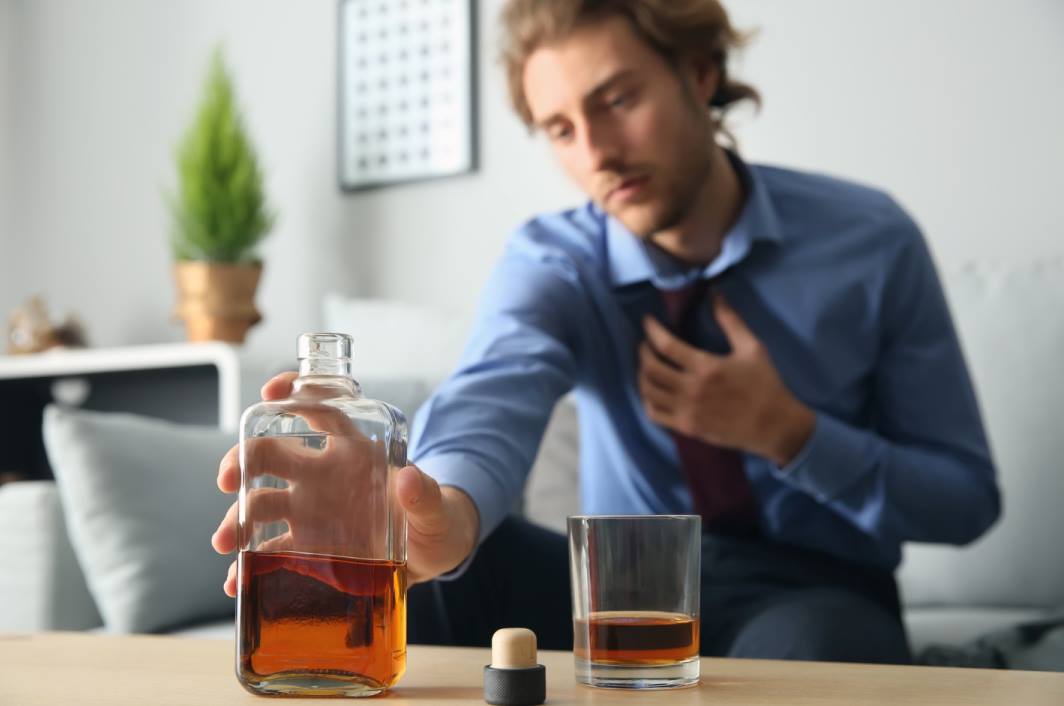The Role of Technology in Treating Alcohol Addiction: From Teletherapy to Apps

Introduction
Alcohol addiction, or alcohol use disorder (AUD), is a pervasive issue that affects millions of people worldwide. Traditionally, treatment for alcohol addiction has involved face-to-face counseling, support groups, and inpatient rehabilitation programs. However, with the rapid advancement of technology, new tools and resources have emerged to support individuals in their recovery journey. From teletherapy to mobile apps, technology is playing an increasingly important role in making treatment more accessible, personalized, and effective. This article explores the role of technology in treating alcohol addiction and how it is transforming the landscape of addiction recovery.
The Rise of Teletherapy in Alcohol Addiction Treatment
What is Teletherapy?
Teletherapy, also known as telehealth or online counseling, involves providing therapeutic services through digital platforms, such as video conferencing, phone calls, or chat services. This approach allows individuals to receive treatment from the comfort of their own homes, making it more convenient and accessible, especially for those who may have difficulty attending in-person sessions due to geographic, physical, or time constraints.
Benefits of Teletherapy
Teletherapy has become an essential tool in treating alcohol addiction, particularly in recent years. According to the American Psychological Association (APA), teletherapy offers several benefits, including:
- Accessibility: Teletherapy removes barriers to treatment by making it accessible to individuals in remote or underserved areas. It also caters to those with mobility issues or tight schedules, ensuring they receive the help they need without significant disruption to their daily lives.
- Privacy and Comfort: Many individuals struggling with alcohol addiction may feel uncomfortable or stigmatized by seeking help in person. Teletherapy provides a level of privacy that can reduce these concerns, allowing individuals to engage in therapy from a familiar and safe environment.
- Continuity of Care: Teletherapy ensures that individuals can continue their treatment even during disruptions, such as the COVID-19 pandemic, when in-person sessions may not be feasible. This continuity is crucial for maintaining progress in recovery.
Effectiveness of Teletherapy
Research has shown that teletherapy can be as effective as traditional face-to-face therapy for treating alcohol addiction. A study published in the *Journal of Substance Abuse Treatment* found that individuals receiving teletherapy for alcohol addiction experienced similar reductions in alcohol use and improvements in mental health compared to those receiving in-person therapy. The study highlights teletherapy's potential to provide effective, accessible care to a broader population.
Mobile Apps: A New Frontier in Addiction Recovery
The Rise of Recovery Apps
In recent years, mobile apps have become a popular tool for supporting individuals in their recovery from alcohol addiction. These apps offer a range of features, from tracking sobriety milestones and managing cravings to providing access to peer support and educational resources. The convenience of having these tools available on a smartphone allows individuals to engage with their recovery process anytime, anywhere.
Key Features of Recovery Apps
Recovery apps come with a variety of features designed to support individuals in different stages of their recovery journey. Some of the most common features include:
- Sobriety Tracking: Many apps allow users to track their days of sobriety, providing visual progress charts and encouraging feedback to motivate continued abstinence. For example, apps like Sober Grid and I Am Sober offer personalized progress reports and reminders of the benefits of staying sober.
- Craving Management: Apps such as Reframe and SoberTool offer tools and exercises to help users manage cravings when they arise. These might include mindfulness practices, cognitive-behavioral techniques, or guided meditations to reduce the urge to drink.
- Peer Support: Connecting with others who are also in recovery is a critical aspect of maintaining sobriety. Apps like Loosid and Tempest provide online communities where users can share their experiences, offer support, and celebrate milestones together.
- Education and Resources: Many recovery apps offer access to educational materials, such as articles, videos, and podcasts, to help users learn more about addiction and recovery. These resources can empower individuals with the knowledge and skills they need to navigate their recovery journey.
The Effectiveness of Recovery Apps
While research on the effectiveness of recovery apps is still emerging, early studies suggest that they can be a valuable component of a comprehensive treatment plan. A study published in the *Journal of Medical Internet Research* found that participants who used a recovery app reported significant reductions in alcohol consumption and improved engagement in their recovery process. The study emphasizes the potential of recovery apps to enhance traditional treatment methods and provide ongoing support between therapy sessions.
Challenges and Considerations
Digital Divide and Accessibility
Despite the many benefits of technology in treating alcohol addiction, there are challenges to consider. The digital divide—disparities in access to technology and the internet—can limit the availability of teletherapy and recovery apps for certain populations, particularly those in low-income or rural areas. Ensuring that these technological tools are accessible to all individuals, regardless of their socioeconomic status, is crucial for equitable treatment.
Privacy and Data Security
Privacy and data security are significant concerns when using digital platforms for addiction treatment. Individuals must feel confident that their personal information and treatment data are protected. Healthcare providers and app developers must adhere to strict privacy regulations, such as the Health Insurance Portability and Accountability Act (HIPAA), to safeguard user data.
Integration with Traditional Treatment
While technology offers many advantages, it should complement, not replace, traditional treatment methods. Teletherapy and recovery apps are most effective when integrated into a broader treatment plan that includes in-person counseling, support groups, and medical care. Collaboration between healthcare providers and tech developers can help ensure that these tools are used effectively within the context of a comprehensive treatment approach.
Conclusion
The role of technology in treating alcohol addiction is rapidly evolving, offering new opportunities for accessible, personalized, and effective care. From teletherapy to recovery apps, these tools are helping individuals manage their addiction, build resilience, and maintain sobriety. While challenges remain, the potential of technology to enhance traditional treatment methods and support long-term recovery is undeniable. As technology continues to advance, it will play an increasingly important role in helping individuals overcome alcohol addiction and lead healthier, more fulfilling lives.
References
- American Psychological Association. (2020). Teletherapy: What You Need to Know. Retrieved from [APA](https://www.apa.org/)
- Journal of Substance Abuse Treatment. (2019). Effectiveness of Teletherapy in Treating Alcohol Use Disorder. Retrieved from [ScienceDirect](https://www.sciencedirect.com/journal/journal-of-substance-abuse-treatment)
- Journal of Medical Internet Research. (2018). The Impact of Mobile Apps on Alcohol Addiction Recovery. Retrieved from [JMIR](https://www.jmir.org/)
- National Institute on Alcohol Abuse and Alcoholism. (2021). Alcohol Use Disorder and the Role of Technology in Treatment. Retrieved from [NIAAA](https://www.niaaa.nih.gov/)
- Substance Abuse and Mental Health Services Administration. (2021). Digital Tools for Addiction Recovery. Retrieved from [SAMHSA](https://www.samhsa.gov/)











